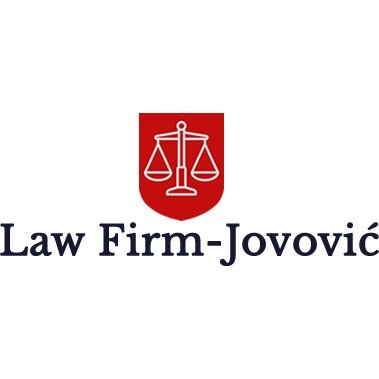Best Creditor Lawyers in Montenegro
Share your needs with us, get contacted by law firms.
Free. Takes 2 min.
Or refine your search by selecting a city:
List of the best lawyers in Montenegro
About Creditor Law in Montenegro:
Creditor law in Montenegro deals with the rights and obligations of creditors, who are individuals or entities that lend money or provide goods and services on credit. It covers issues such as loan agreements, debt collection, bankruptcy, and enforcement of creditor rights.
Why You May Need a Lawyer:
You may need a lawyer in Montenegro if you are facing difficulties in collecting debts, need to renegotiate loan agreements, or if you are involved in a bankruptcy proceeding. A lawyer can provide legal advice, represent you in court, and help protect your rights as a creditor.
Local Laws Overview:
In Montenegro, the Law on Obligations governs creditor relationships, while the Law on Bankruptcy regulates insolvency proceedings. It is important to understand these laws and how they apply to your specific situation as a creditor.
Frequently Asked Questions:
1. Can a creditor seize my assets in Montenegro?
Yes, creditors in Montenegro have the right to seize assets to recover debts, but they must follow legal procedures.
2. What is the statute of limitations for collecting debts in Montenegro?
The statute of limitations for debt collection in Montenegro is usually three years.
3. Can I negotiate with debtors without involving a lawyer?
While you can negotiate with debtors on your own, having a lawyer can help protect your legal rights and provide guidance on the best course of action.
4. How can I enforce a court judgment as a creditor in Montenegro?
To enforce a court judgment, creditors can request the court to issue enforcement orders, which allow for the seizure of debtor assets.
5. What are my rights as a creditor in a bankruptcy proceeding?
As a creditor in a bankruptcy proceeding, you have the right to participate in creditors' meetings, submit claims, and challenge decisions that affect your rights.
6. Can I claim interest on overdue debts in Montenegro?
Yes, creditors in Montenegro have the right to claim interest on overdue debts, as stipulated in the Law on Obligations.
7. What are the risks of not seeking legal advice as a creditor in Montenegro?
The risks of not seeking legal advice include losing out on potential recovery options, making legal mistakes that could harm your case, and facing challenges in enforcing your rights.
8. How can I verify the solvency of a debtor in Montenegro?
You can verify the solvency of a debtor by conducting a credit check, reviewing financial statements, and consulting with legal professionals.
9. Can a creditor file for bankruptcy in Montenegro?
Yes, creditors in Montenegro can file for bankruptcy against debtors who are unable to meet their financial obligations.
10. How can a lawyer help me as a creditor in Montenegro?
A lawyer can help you navigate complex legal processes, protect your rights, negotiate on your behalf, and represent you in court if necessary.
Additional Resources:
For more information on creditor rights and obligations in Montenegro, you can contact the Chamber of Commerce, the Montenegrin Bar Association, or the Ministry of Justice.
Next Steps:
If you require legal assistance as a creditor in Montenegro, consider consulting with a qualified lawyer who specializes in creditor law. They can provide personalized advice based on your unique circumstances and help you navigate the legal complexities of debt collection and bankruptcy proceedings.
Lawzana helps you find the best lawyers and law firms in Montenegro through a curated and pre-screened list of qualified legal professionals. Our platform offers rankings and detailed profiles of attorneys and law firms, allowing you to compare based on practice areas, including Creditor, experience, and client feedback.
Each profile includes a description of the firm's areas of practice, client reviews, team members and partners, year of establishment, spoken languages, office locations, contact information, social media presence, and any published articles or resources. Most firms on our platform speak English and are experienced in both local and international legal matters.
Get a quote from top-rated law firms in Montenegro — quickly, securely, and without unnecessary hassle.
Disclaimer:
The information provided on this page is for general informational purposes only and does not constitute legal advice. While we strive to ensure the accuracy and relevance of the content, legal information may change over time, and interpretations of the law can vary. You should always consult with a qualified legal professional for advice specific to your situation.
We disclaim all liability for actions taken or not taken based on the content of this page. If you believe any information is incorrect or outdated, please contact us, and we will review and update it where appropriate.
Browse creditor law firms by city in Montenegro
Refine your search by selecting a city.









